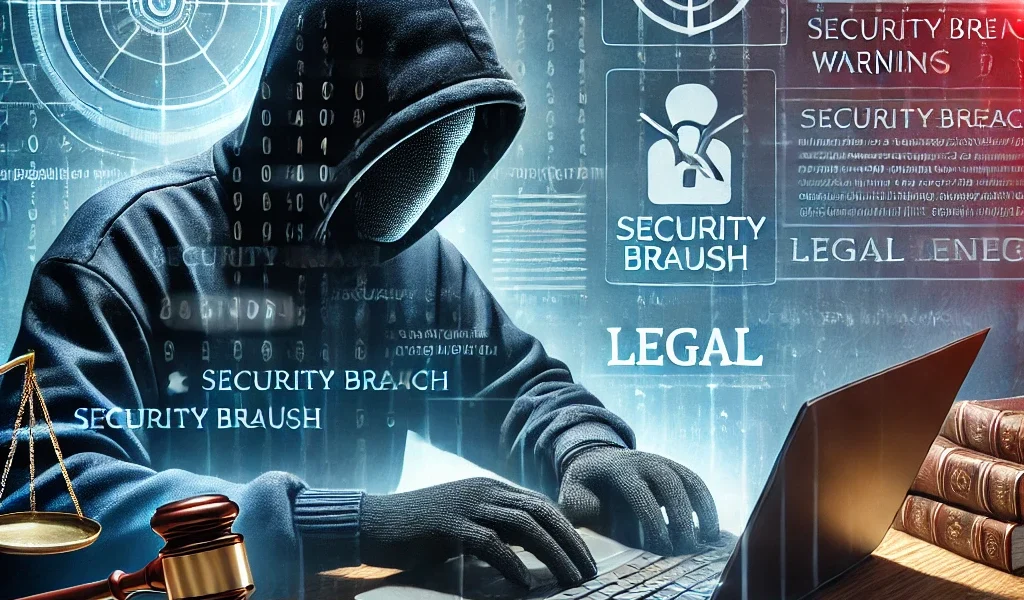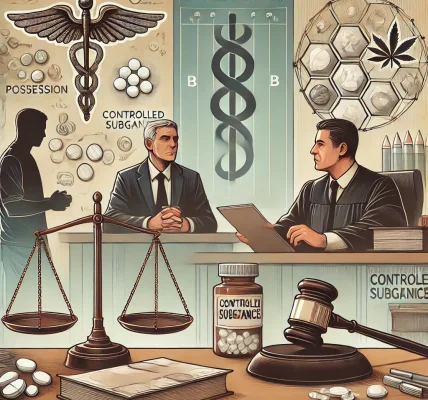Introduction
The rise of the digital age has revolutionized communication, commerce, and information sharing. However, it has also opened the door to new forms of crime, commonly referred to as cyber crimes and digital fraud. Cyber crimes range from hacking and identity theft to financial fraud and online harassment, posing significant challenges for law enforcement and legal systems worldwide.
Understanding how criminal law applies online is essential for individuals, businesses, and legal professionals. This article explores key types of cyber crimes, legal implications, and preventative measures to stay protected in the digital world.
1. What Are Cyber Crimes?
Cyber crimes refer to illegal activities carried out using computers, networks, or digital devices. These offenses can target individuals, organizations, or even governments. The most common types of cyber crimes include:
A. Hacking and Unauthorized Access
- Definition: Gaining unauthorized access to a computer system, network, or data.
- Examples: Breaking into email accounts, corporate networks, or government systems.
- Legal Consequences: Laws such as the Computer Fraud and Abuse Act (CFAA) in the U.S. and similar global regulations impose severe penalties, including imprisonment and hefty fines.
B. Identity Theft and Financial Fraud
- Definition: Stealing someone’s personal information (e.g., Social Security number, bank details) to commit fraud.
- Examples: Credit card fraud, phishing scams, and impersonation for financial gain.
- Legal Consequences: Identity theft laws criminalize such activities, with penalties ranging from fines to long-term imprisonment.
C. Phishing and Online Scams
- Definition: Fraudulent attempts to obtain sensitive information by disguising as a trustworthy entity.
- Examples: Fake emails from banks requesting account details, lottery scams, and social engineering attacks.
- Legal Consequences: Fraud laws and cyber regulations target individuals and groups involved in phishing schemes.
D. Cyberstalking and Online Harassment
- Definition: Using digital platforms to threaten, stalk, or harass individuals.
- Examples: Sending threatening messages, doxing (publishing private information), and cyberbullying.
- Legal Consequences: Many jurisdictions have laws criminalizing online harassment, with punishments including restraining orders and prison time.
E. Ransomware and Malware Attacks
- Definition: Malicious software designed to encrypt files or disrupt systems until a ransom is paid.
- Examples: Ransomware attacks on hospitals, businesses, and government agencies.
- Legal Consequences: Many countries classify ransomware attacks as cyber terrorism, with strict penalties for offenders.
2. Legal Framework for Cyber Crimes
Cyber crimes are governed by various national and international laws. The application of criminal law online depends on the jurisdiction and the type of offense. Some key legal frameworks include:
A. U.S. Cyber Laws
- Computer Fraud and Abuse Act (CFAA): Criminalizes unauthorized access to computers and networks.
- Electronic Communications Privacy Act (ECPA): Protects online communications from unauthorized access.
- Identity Theft and Assumption Deterrence Act: Targets fraudulent use of personal information.
B. International Cybercrime Laws
- General Data Protection Regulation (GDPR) (EU): Protects personal data and privacy.
- Budapest Convention on Cybercrime: A global treaty to combat cyber offenses.
- India’s Information Technology Act (ITA): Addresses hacking, fraud, and data breaches.
3. Challenges in Prosecuting Cyber Crimes
Unlike traditional crimes, cyber crimes lack geographical boundaries, making prosecution complex. Key challenges include:
- Anonymity of Cybercriminals: Many attackers hide behind VPNs and encryption tools.
- Jurisdictional Issues: Cyber crimes often involve multiple countries, making cooperation difficult.
- Evolving Tactics: Criminals continuously develop new methods to bypass security and law enforcement.
4. How to Protect Yourself from Cyber Crimes
While governments and legal systems work to combat cyber crimes, individuals and businesses must take proactive measures. Here are some essential cybersecurity tips:
A. Use Strong Passwords and Multi-Factor Authentication (MFA)
- Avoid simple passwords like “123456” or “password.”
- Enable MFA on all sensitive accounts.
B. Be Aware of Phishing Scams
- Verify email sources before clicking links.
- Never share personal information with unknown contacts.
C. Keep Software and Devices Updated
- Regularly update operating systems and antivirus software.
- Patch vulnerabilities to prevent hacking attempts.
D. Secure Your Financial Transactions
- Use only trusted websites for online purchases.
- Enable fraud alerts on banking accounts.
E. Educate Yourself and Your Employees
- Businesses should train employees on cybersecurity best practices.
- Stay informed about the latest online threats.
Conclusion
Cyber crimes and digital fraud are serious offenses with severe legal consequences. As technology advances, criminal law continues to evolve to address online threats. Understanding how criminal law applies to cyber crimes is essential for staying protected and ensuring compliance with legal standards.
For businesses, individuals, and legal professionals, staying informed about cybersecurity measures and relevant laws can prevent costly legal troubles and digital fraud incidents.




